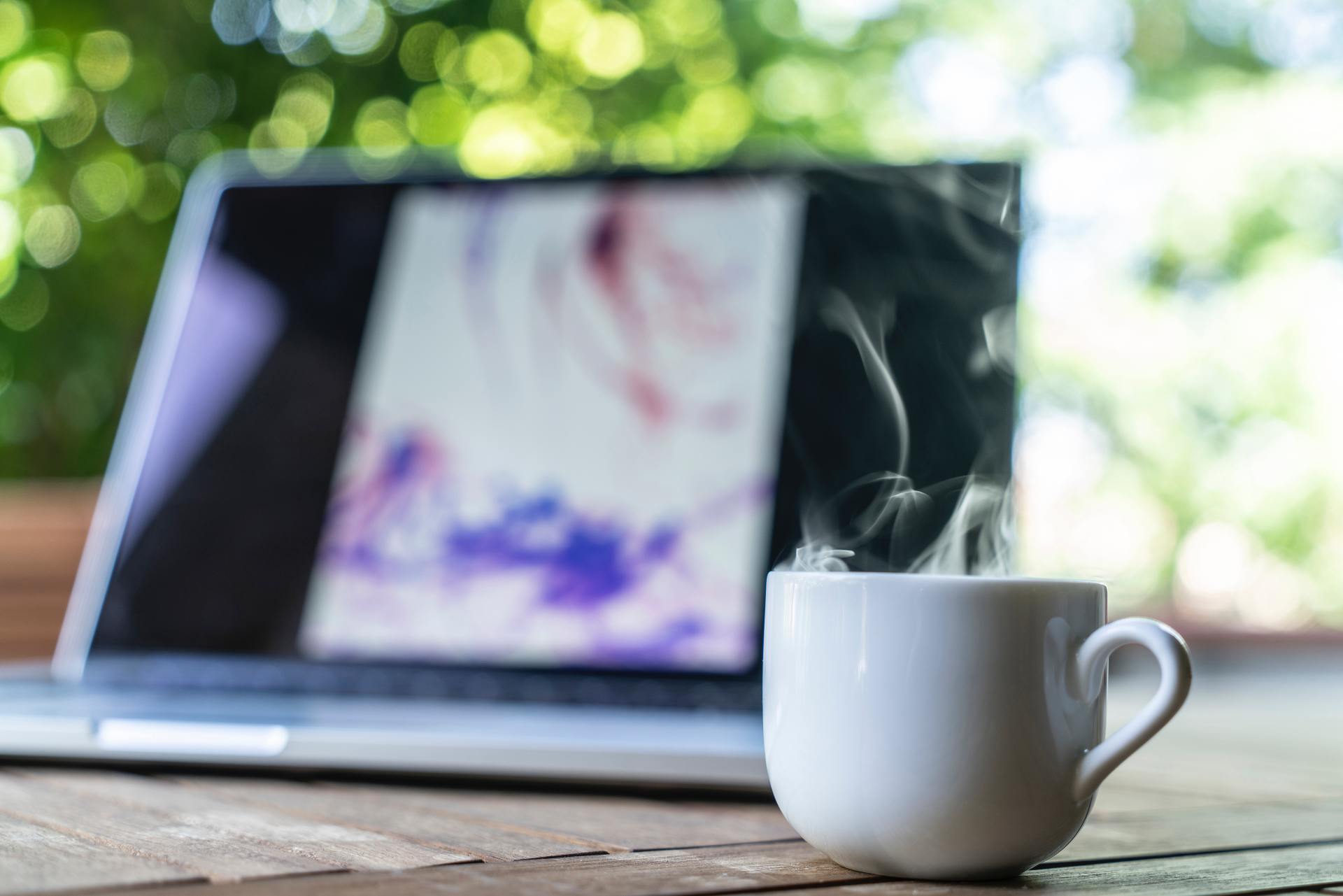It’s Only an Illusion
May 17, 2020

by Kevin Tutty, LPC
Remember watching David Copperfield on TV when he made the Statue of Liberty disappear and reappear? I thought it had to be a camera trick. Or was it? Control can be like that in our lives. We think we are in control of things when we really aren’t.
My old pastor used to say, “Control is an illusion.” We think we can control events and circumstances when we are actually in control of very little. We are in control of our actions, and feelings and most of the time, our thoughts. When we try to control events outside of these areas, we will eventually be unable to control.
In these times of social-distancing, many try to control things they are not able to control. I read an article that said that the reason people rushed out to buy toilet paper – many rolls of it at a time – was that it give them a sense of control over their life, reducing anxiety. The other factor is that when people saw others buying toilet paper, they thought they better get some too. Soon there wasn’t enough for those not buying large quantities. Then, there wasn’t enough toilet paper in the store, leading to arguments and fights that people would have never have been involved in with another situation. Once the “flight or fight” response part of our brains kicked in, the rational part of the brain has no chance.
Recognizing what we are in control of is an important step to reducing anxiety. If we can look at situations that we are not in control of (like other people’s actions) we are more likely to remain calm in tense situations. This recognition has to be made before the anxiety-producing situation though, so we are prepared for it.
The more we try to gain control of situations not in our control, the more problems we have in our and other’s lives. Trying to control other’s actions is futile, and if left unchecked, can lead to anxiety disorders. This can strain relationships, especially with the people we live with. Releasing that control actually gives us freedom to live better, happier lives. The fear of not having control drives us to make irrational decisions we wouldn’t normally make.
So, what do we do? Releasing control isn’t easy when we are used to trying to control situations, events or other people’s actions. As simple as it sounds, taking 5 slow, deep breaths is a great way to get “control” of your own actions in the moment. Finding an enjoyable hobby (while reducing screen time) is a great way to distract ourselves when able. Exercise of any kind has great benefits to reduce not only anxiety, but depression as well (even more than medicine!). Soon, you will find that things that used to cause you worry or fear don’t create as much distress as they once did.
Kevin Tutty, LPC, is a Staff Clinician at Transforming LIfe Counseling Center
Kevin Tutty, LPC, is a Staff Clinician at Transforming LIfe Counseling Center

2025 has been another year filled with joy, growth, and meaningful service as Transforming Life Counseling Center continues its mission to support the mental health needs of our community. With a dedicated team of 19 therapists, TLCC is honored to walk alongside individuals and families facing a wide variety of challenges. We count it a true blessing to be trusted with your care and to play a role in strengthening the well-being of our community. As we reflect on this year, our hearts are full of gratitude—for your support, your courage, and the opportunity to make a difference together. From all of us at TLCC, we wish you a very Merry Christmas and a joyful, peaceful holiday season. May the coming year bring hope, healing, and continued connection.

We want to extend our heartfelt congratulations to one of our esteemed therapists, Caleb Scoville, MS, LPC . On Thursday, November 13th, the Hough Ear Institute (HEI) held its annual Awards Gala, where Caleb was honored with the Elevate Award for his outstanding collaboration with HEI and his dedicated facilitation of the Tinnitus Support Group over the past two years. Transforming Life Counseling Center is grateful for our continued partnership with the Hough Ear Institute. We are honored to provide a home for the Tinnitus Support Group throughout 2025 and look forward to supporting this meaningful work in the coming year. The group offers both in-person and virtual options, expanding access to individuals across the country. TLCC sincerely thanks the Hough Ear Institute—not only have we been privileged to help facilitate this group, but we have also been deeply blessed by the connections formed and the resilience of the individuals we have met through it. The Hough Ear Institute , located in Oklahoma City, is responsible for groundbreaking research, education, and humanitarian efforts in the field of hearing and overall wellness. Our metro community is truly fortunate to have such innovative and life-changing work happening right here at home. One key area of HEI’s research is the management and treatment of tinnitus. Individuals living with tinnitus often experience cognitive, emotional, and behavioral challenges, including persistent ringing or buzzing in one or both ears. These symptoms can lead to significant distress, anxiety, and depression, especially when combined with life stressors, underlying medical conditions, or repeated exposure to loud noise. For the past two years, HEI has hosted a Tinnitus Support Group, providing a compassionate space for those affected to gather, share experiences, and uplift one another. We are honored to continue supporting this vital resource. For more information—or to donate to this worthy and life-changing cause—please visit Hough Ear Institute . To join or share details about the Tinnitus Support Group, visit Tinnitus Support Group or call (405) 246-5433 for more information.

By Kevin Tutty, LPC If you have children, you know how easy it is to find Christmas centered around your kids. When I was single, I wondered why everyone became so busy this time of year. In a self-indulged world, marketing is designed to focus us on ourselves: It can be hard to focus on others. It wasn’t until I had a family that saw just how busy this time of year is! The Holidays are also a time of year when depression rises. I heard a pastor once say if you don’t want to feel a certain way, do something to take your mind off of how you are feeling. One great way to do this is to look for opportunities to help someone in need. For example, if you feel isolated, volunteer at a church, food bank, or other entity that helps others. This time of year is an excellent time to volunteer, as there is a greater need for volunteers in the non-profits that serve the people in our community. It is also a great way for a family to engage in a fun activity together, while helping those in need. I am convinced that once “the volunteer bug” gets someone, they will not need a reason to help others, as they will want to find opportunities to do that. This happened to me on a mission trip once and I wanted to return to the mission field the next chance I had to go. We are blessed by giving to others. When giving to those in need there is a distinction between two easily misinterpreted terms: sympathy and empathy. Sympathy is more self-focused: We get this feeling when we “feel” badly for someone in a difficult situation. On the other hand, we feel empathy when we are able to put ourselves in another’s place and see things from their perspective. When we empathize with another, our efforts are focused on the other person. The other person is validated because we are looking at things from their point of view, and understand their person’s situation or perspective. Volunteering is a great way to develop empathy, especially for those who are focused on their own wants and desires. Back to volunteering though, be prepared to get some resistance initially when proposing the idea of volunteering, especially if your kids are not used to it. Once you go, try to make it as fun as possible, scheduling a fun activity the family can engage in together along with the volunteer effort. Then, process the volunteer effort over dinner and see what other types of volunteering would be of interest to them next. There are a number of local agencies that would be good opportunities to volunteer. Here are just a few to get started: Regional Food Bank (12 and older): 405-972-11111 EARC Thrift Store (Downtown Edmond): 405-285-7658 (South Edmond): 405-348-6502 Hope Center (Edmond): 405-348-4680 Local churches can connect you to volunteer opportunities The City Rescue Mission in Downtown Oklahoma City (405-232-2709) offers groups a great opportunity to get a tour of the facility as well as serving the homeless. The Christmas and Holiday Season is such a fun time, with many activities and opportunities to serve others. We are truly more blessed when we are serving others! Kevin Tutty is a Licensed Practical Counselor and a clinical member at Transforming Life Counseling Center.

Transforming Life Counseling Center is pleased to continue to expand our team of quality therapists with the addition of a new team member. We welcome our newest member: Necco Gill, Licensed Professional Counselor. This therapist supports TLCC in continuing to support the vast counseling needs of our community and brings new areas of training. For more information on her expertise and training, you can find her bio below and on our website. In addition to our licensed staff, TLCC also has pre-licensed candidates who receive supervision by our therapists and can offer lower fees in an effort to support clients needing therapy at a lower cost. For more information about our therapists, insurances we take and fees, our phone number is (405) 246-5433 Necco Gill, LPC


